Key takeaways:
- Telecommunications technology enables distant communication through electronic means, significantly impacting societal progress and connectivity.
- Satellite security is crucial for protecting essential services like GPS and online banking, with vulnerabilities arising from hacking, sabotage, and space debris.
- Current security measures, including encryption and anomaly detection, are vital in safeguarding satellite operations against both cyber and physical threats.
- Best practices such as cyber hygiene, access controls, and regular security audits enhance the resilience of satellite systems against evolving threats.
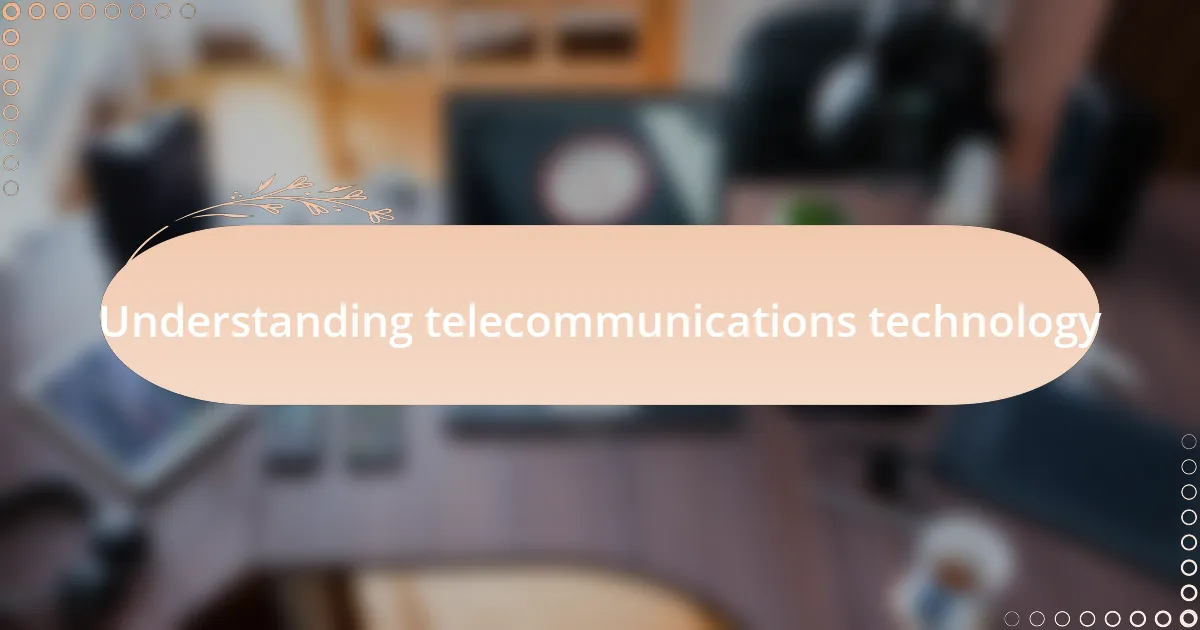
Understanding telecommunications technology
Telecommunications technology encompasses the systems and methods that enable communication across distances, bridging gaps that once felt insurmountable. I remember my first experience using a satellite phone during a hiking trip, which blew my mind. How was I able to connect with friends and family while miles away from civilization? It was a testament to the power of this technology.
At its core, telecommunications involves the transmission of information via electronic means, whether through wires, radio waves, or fiber optics. It’s fascinating to think about how much we rely on this technology daily. Have you ever considered how a simple text message travels thousands of miles in an instant? Understanding the intricacies of these systems can truly enhance our appreciation for the connectivity we often take for granted.
Moreover, the evolution of telecommunications has greatly influenced societal progress. I recall attending a conference where experts discussed the staggering advances in mobile technology. How could a small device in our pockets hold the ability to connect us to the world? This ongoing evolution not only transforms how we communicate but also shapes our relationships and global interactions, often in ways we don’t even realize.
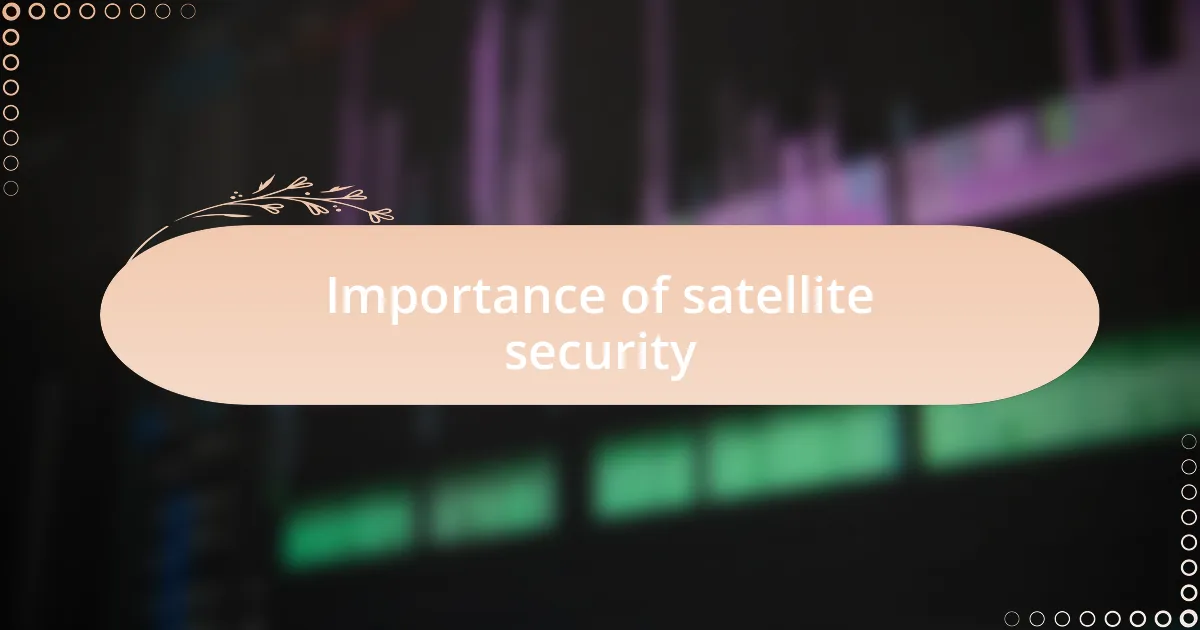
Importance of satellite security
The importance of satellite security cannot be overstated, as satellites play a critical role in GPS navigation, weather forecasting, and global communications. I vividly recall a moment when a satellite glitch disrupted my navigation during a road trip. It made me realize how vulnerable we are when such systems are compromised, affecting not just individuals but entire sectors.
In an age where information is both a commodity and a weapon, protecting satellite infrastructure is crucial. There was a time when I thought satellite security was a matter solely for tech experts, but I’ve come to understand that it impacts everyone. Imagine how daily conveniences—from online banking to streaming services—rely on secure satellite connections; any breach could lead to significant disruptions.
The threat landscape is constantly evolving, with potential attacks on satellites ranging from hacking to physical sabotage. I remember reading about a high-profile incident where a satellite was targeted, and I couldn’t help but feel a pang of anxiety. It underscored the necessity of robust security measures to safeguard our communication lifelines, affecting everything from national security to personal privacy. What would our world look like if these systems were compromised? It’s a thought that lingers as we navigate this increasingly interconnected landscape.
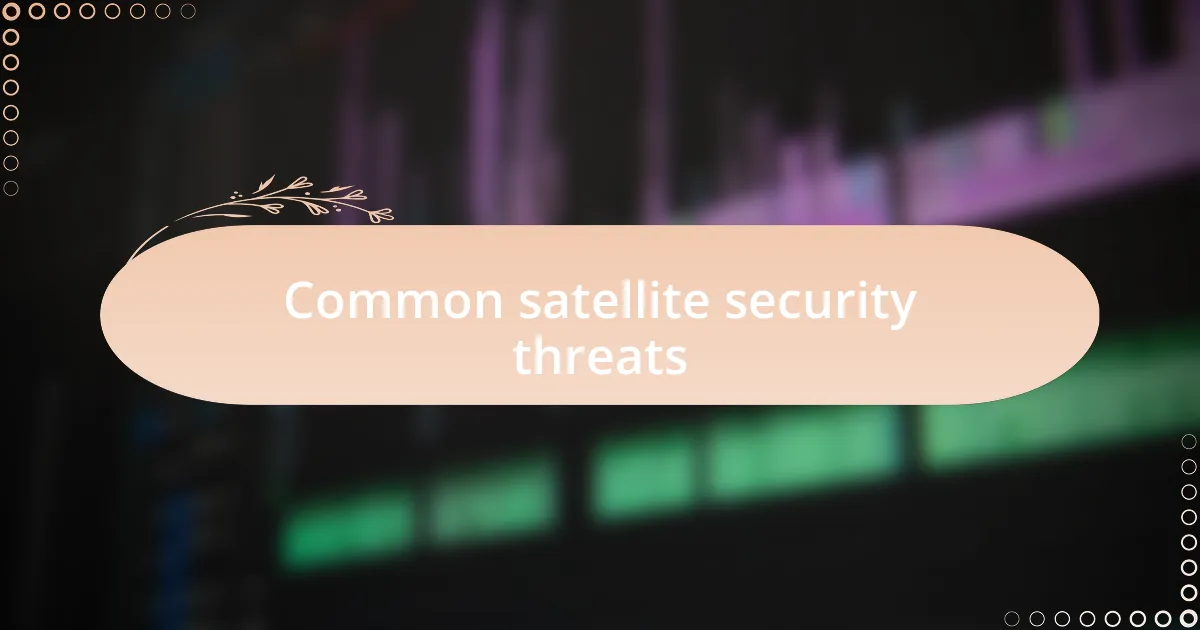
Common satellite security threats
When I think about common satellite security threats, several alarming scenarios come to mind. Hacking is perhaps the most prevalent threat, where cybercriminals can infiltrate satellite systems and potentially manipulate data or disrupt services. I recall a friend who works in telecommunications sharing a story about a group that managed to access satellite communication channels, leading to chaos for several organizations. It left me wondering: how many more times could this happen without us even knowing?
Another significant threat is physical sabotage, which might seem less common but can be devastating. Just recently, I learned about an incident where an antenna was damaged during a protest, resulting in a loss of connectivity for an entire region. The direct impact on communication made me realize that even though satellite systems are often viewed from a technical lens, they are vulnerable to real-world actions. It’s unsettling to think how easily someone could disrupt essential services.
We also can’t ignore the threat posed by space debris, which is becoming an increasingly serious concern. I remember a documentary I watched about old satellites colliding in space, creating a cascade of debris that risks operational satellites. This made me think: if we cannot control our actions in orbit, what does that mean for the future of satellite operations? The blend of our technological advancements and physical risks truly piques my interest in the importance of innovative solutions for satellite security.
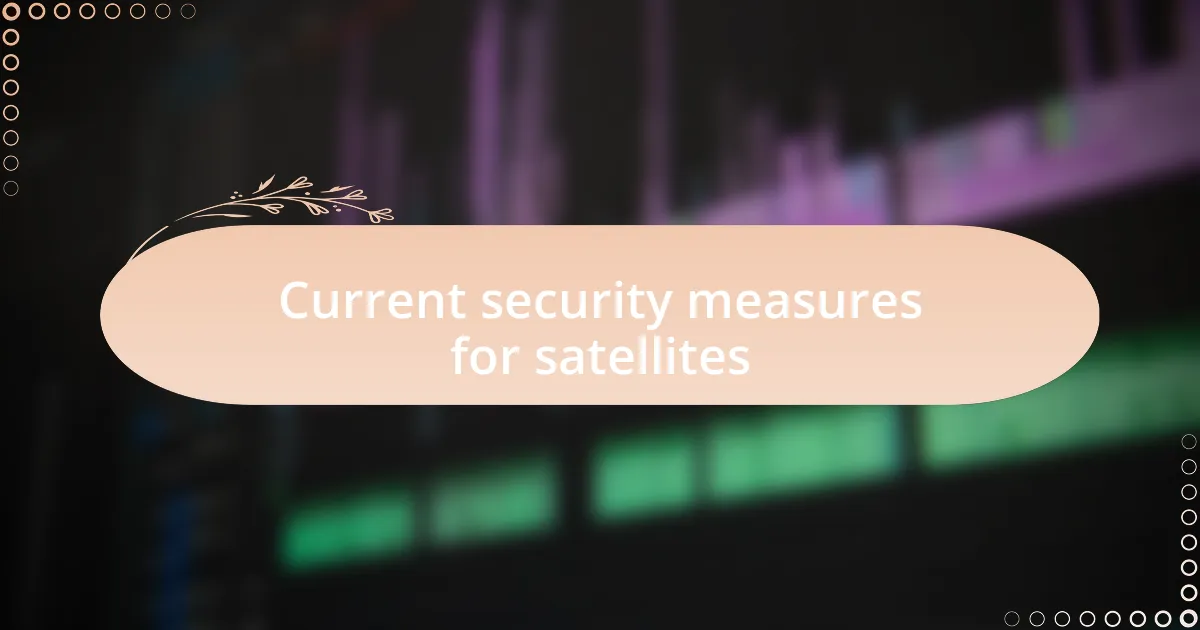
Current security measures for satellites
Current satellite security measures are multifaceted, addressing both cyber and physical threats. I recall a time when I attended a conference discussing encryption technologies used for satellite communications. The presenters emphasized that robust encryption protocols act like a digital lock, making it significantly harder for intruders to access sensitive information. It really struck me how vital these measures are in protecting our data from relentless cyber threats.
Additionally, satellite operators are increasingly focusing on monitoring and anomaly detection systems. I once spoke with a satellite technician who described how these systems can alert teams to unusual patterns or unauthorized usage. It’s fascinating to think about how technology is advancing to create a safety net, allowing operators to respond quickly to potential threats and ensure uninterrupted service. Doesn’t it make you wonder if we’ll ever reach a point where we feel completely secure in the satellite realm?
Physical security measures are equally important, as they protect the ground stations that control satellites. I remember visiting a facility and seeing the extensive physical barriers, surveillance systems, and security personnel in place. It made me realize how essential these precautions are, especially when considering that a single breach can lead to catastrophic consequences. How often do we really think about the physical safety of the technology we depend on?
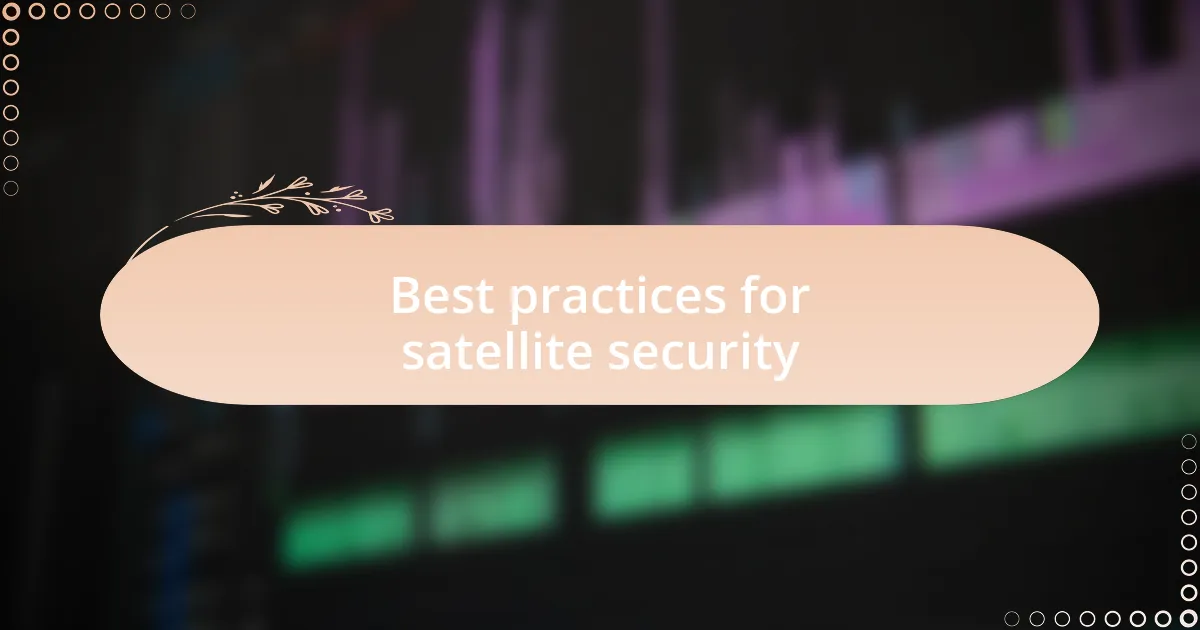
Best practices for satellite security
When it comes to satellite security, one best practice I’ve observed is the rigorous application of cyber hygiene protocols. I remember a conversation I had with an expert on network security who emphasized that regular software updates and patch management are critical. It’s like keeping the doors of your home locked and checking them frequently; neglecting these tasks can lead to vulnerabilities that hackers eagerly exploit. Why take the risk when a bit of diligence can safeguard the integrity of satellite communications?
Another effective measure is the use of access controls. During my time in the field, I’ve seen organizations implement strict authentication processes, such as multi-factor authentication (MFA). This approach creates an additional layer of security that significantly reduces the likelihood of unauthorized access. Think about it: if someone had to prove their identity in multiple ways, would they still attempt to break in? It’s definitely a deterrent that merits serious consideration.
Finally, conducting regular security audits is an indispensable practice for satellite operators. I recall attending an audit review meeting where unexpected vulnerabilities were identified, even in systems that had previously seemed secure. It was a clear reminder that complacency can be a security risk. How often do we proactively check our own safety measures? Regular audits can lead to essential improvements, enhancing overall resilience against threats in a landscape that’s ever-evolving.